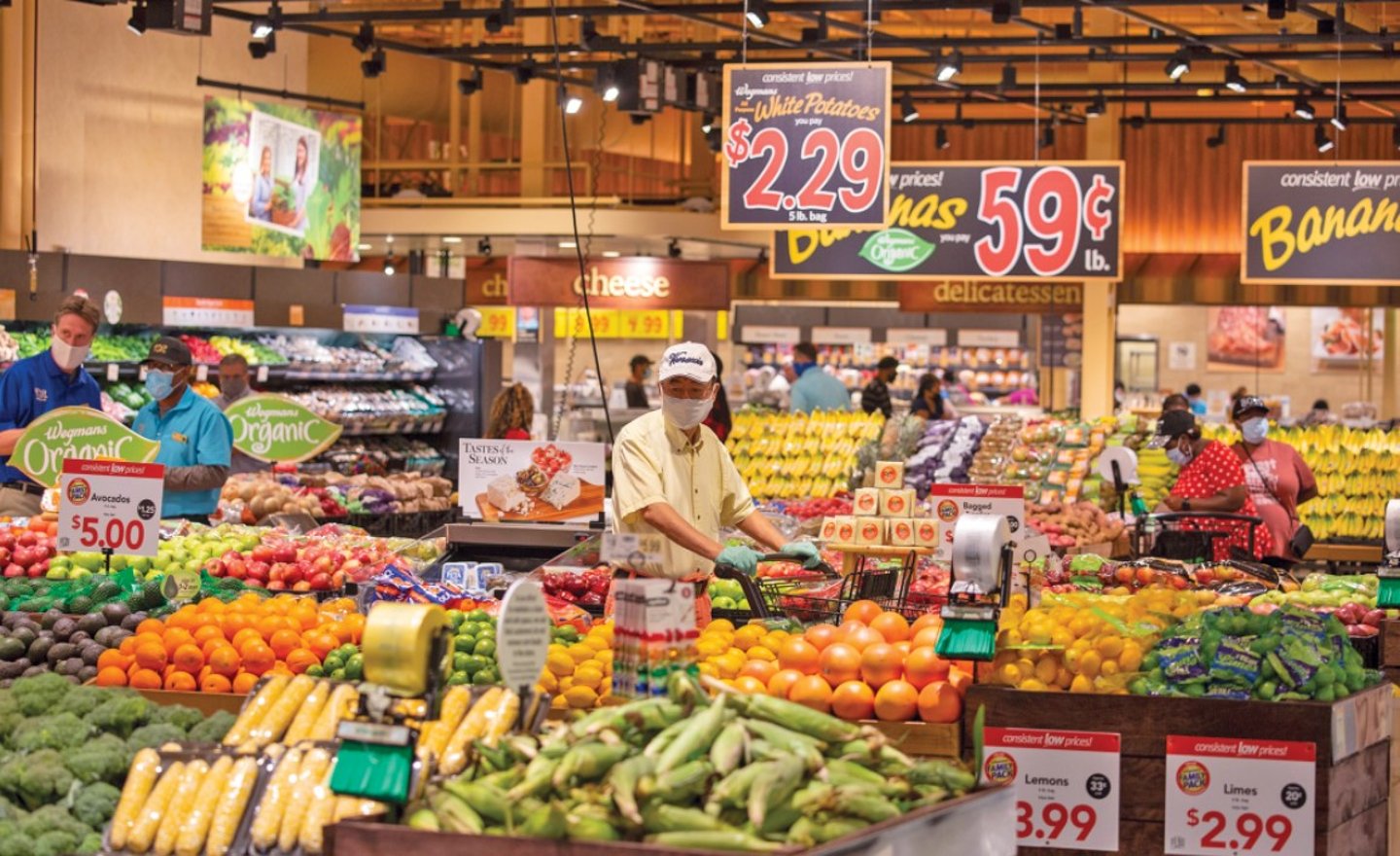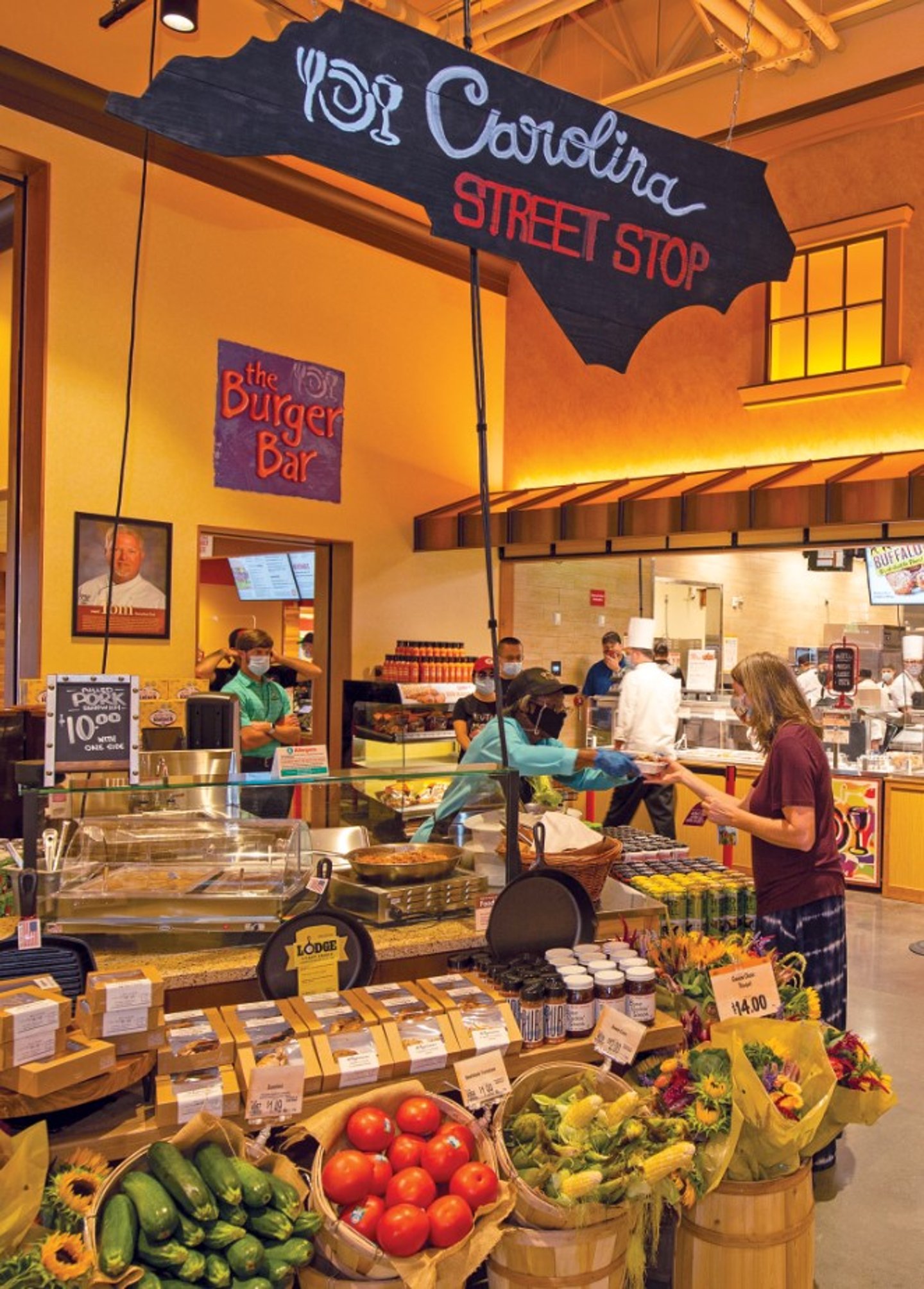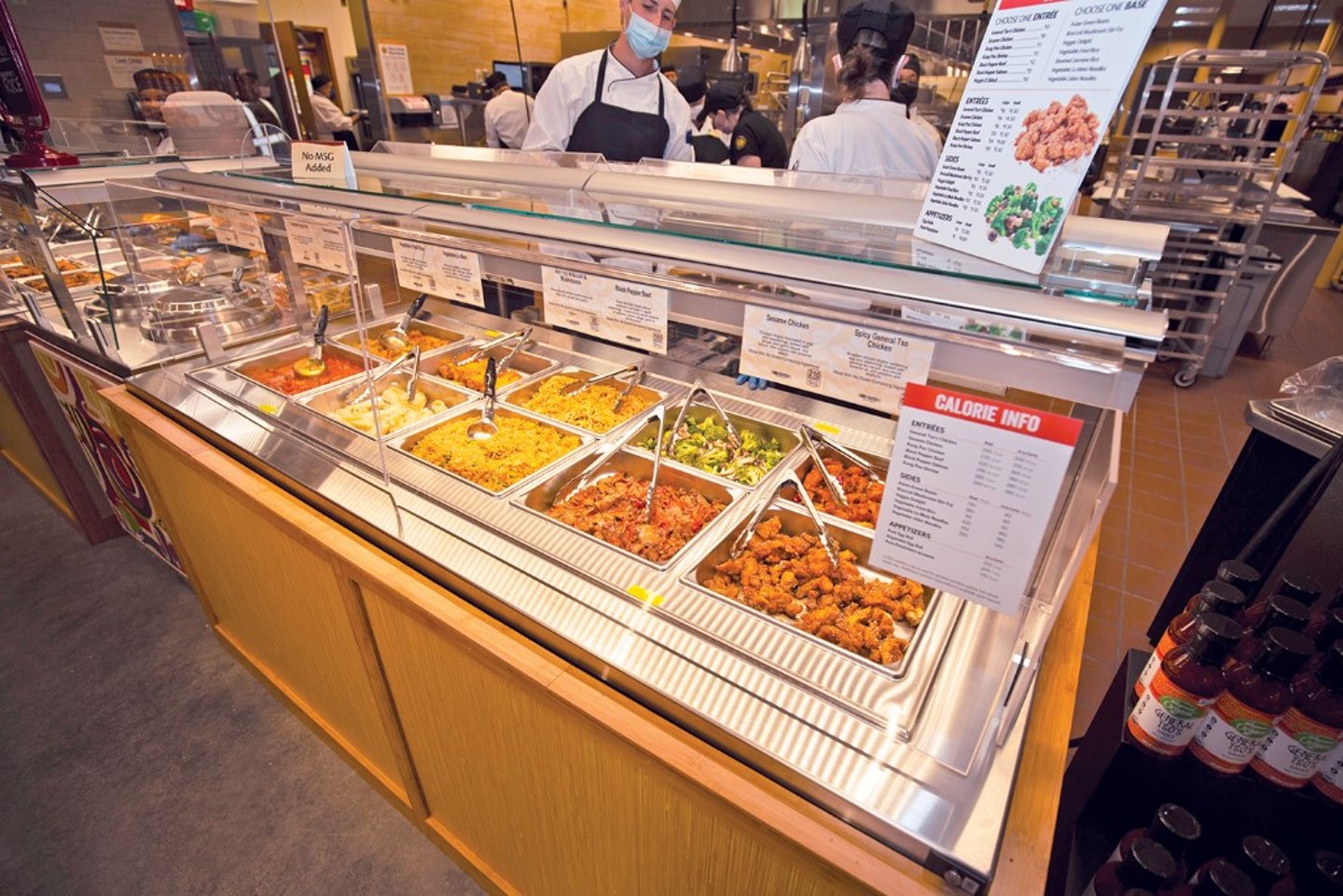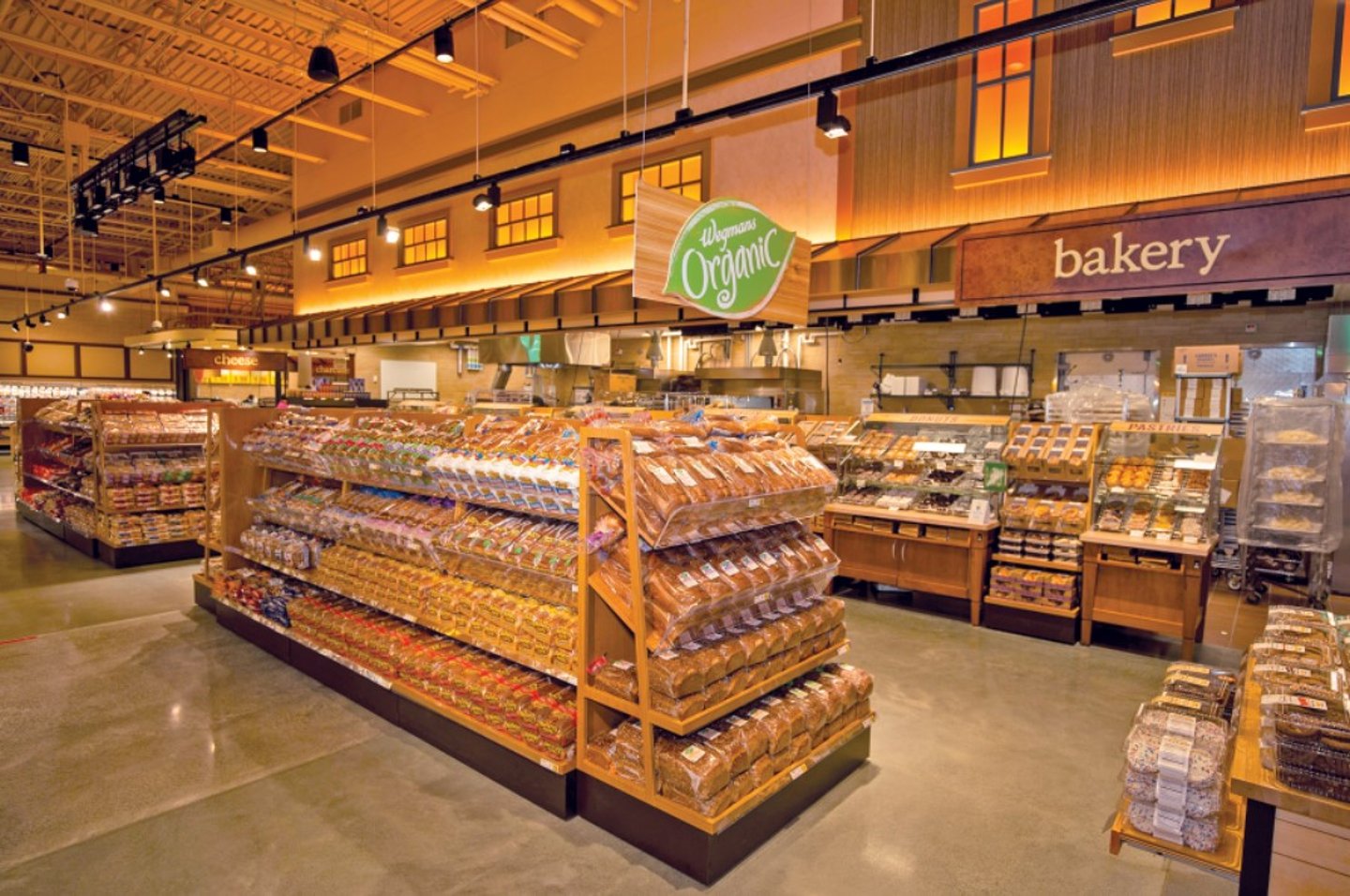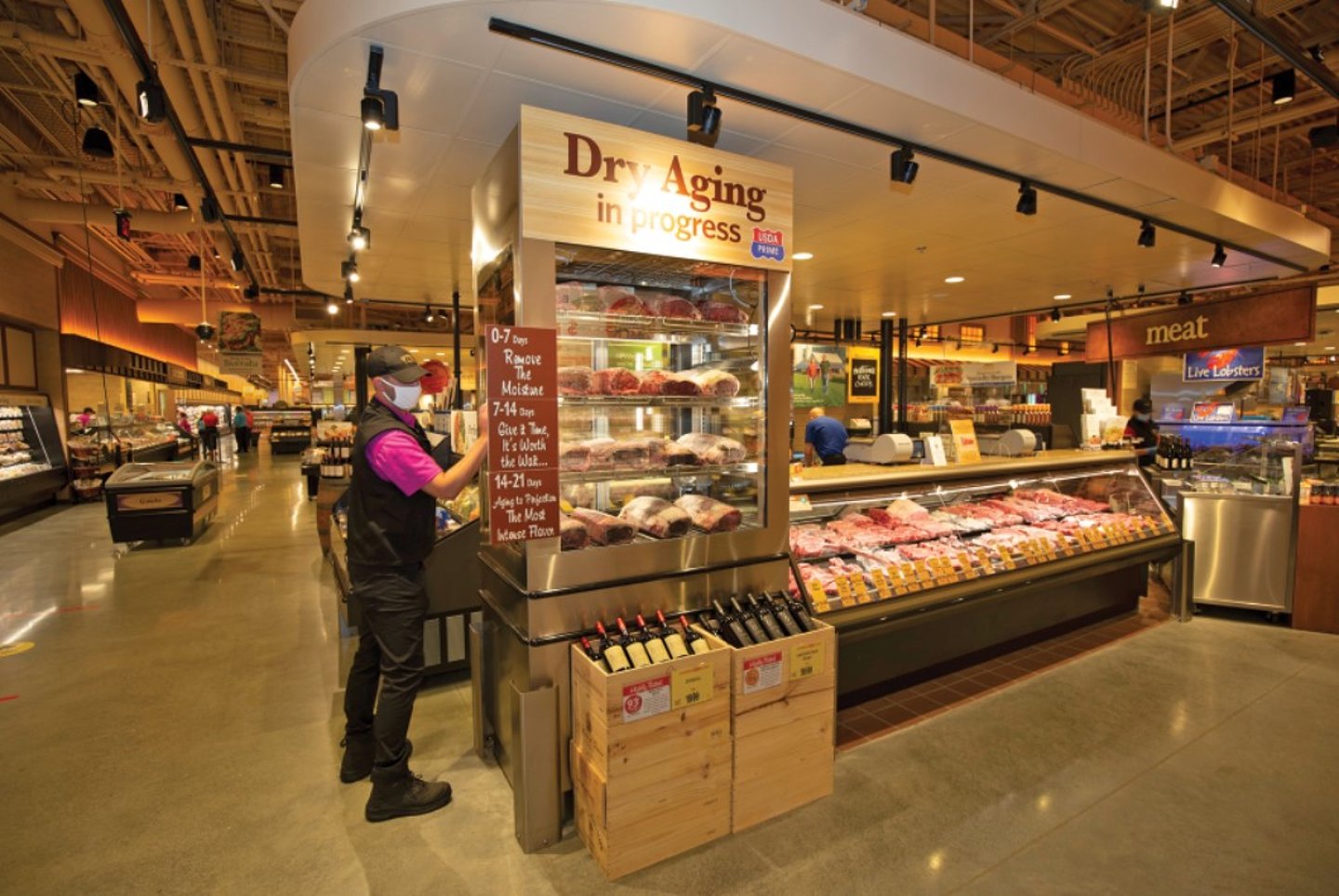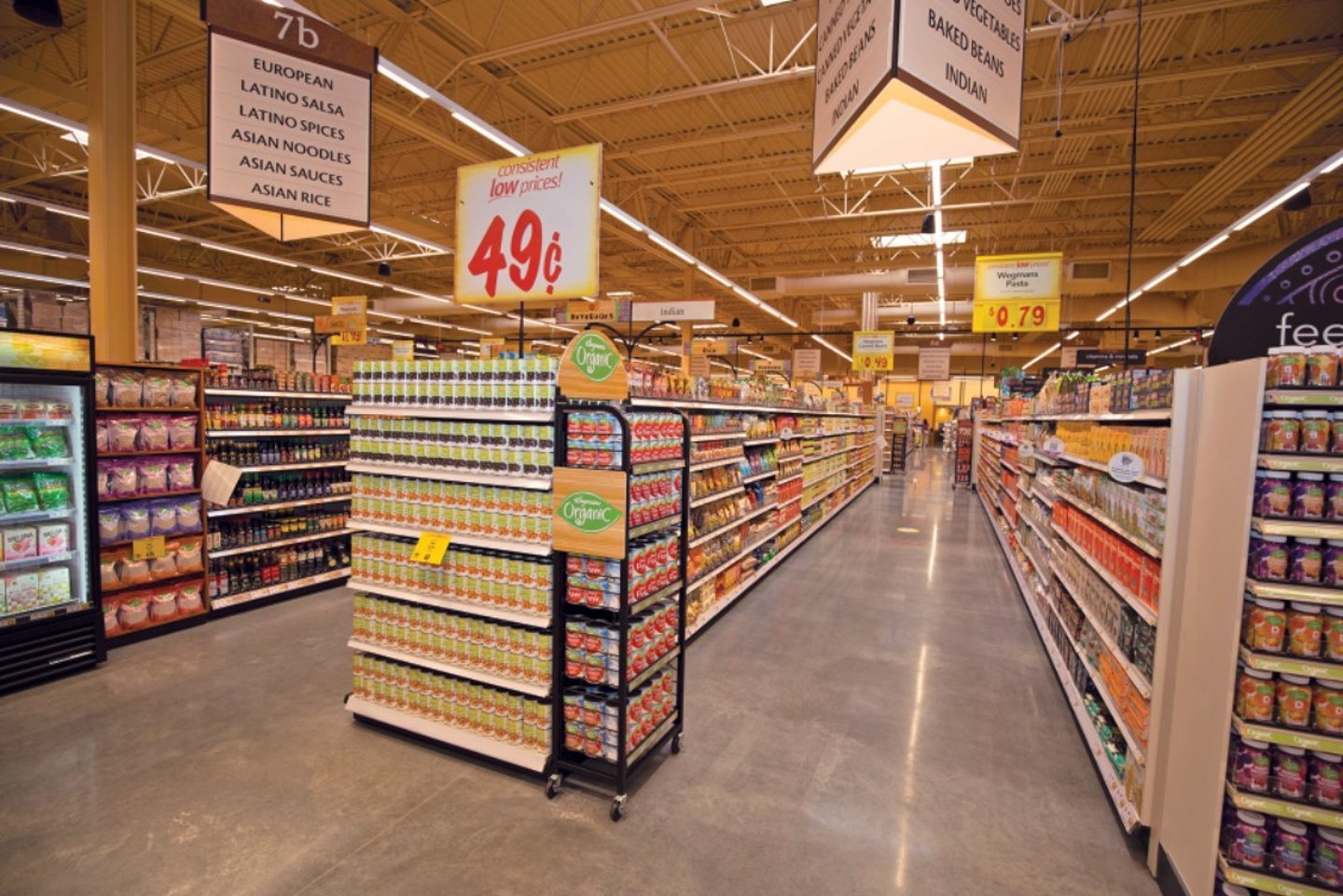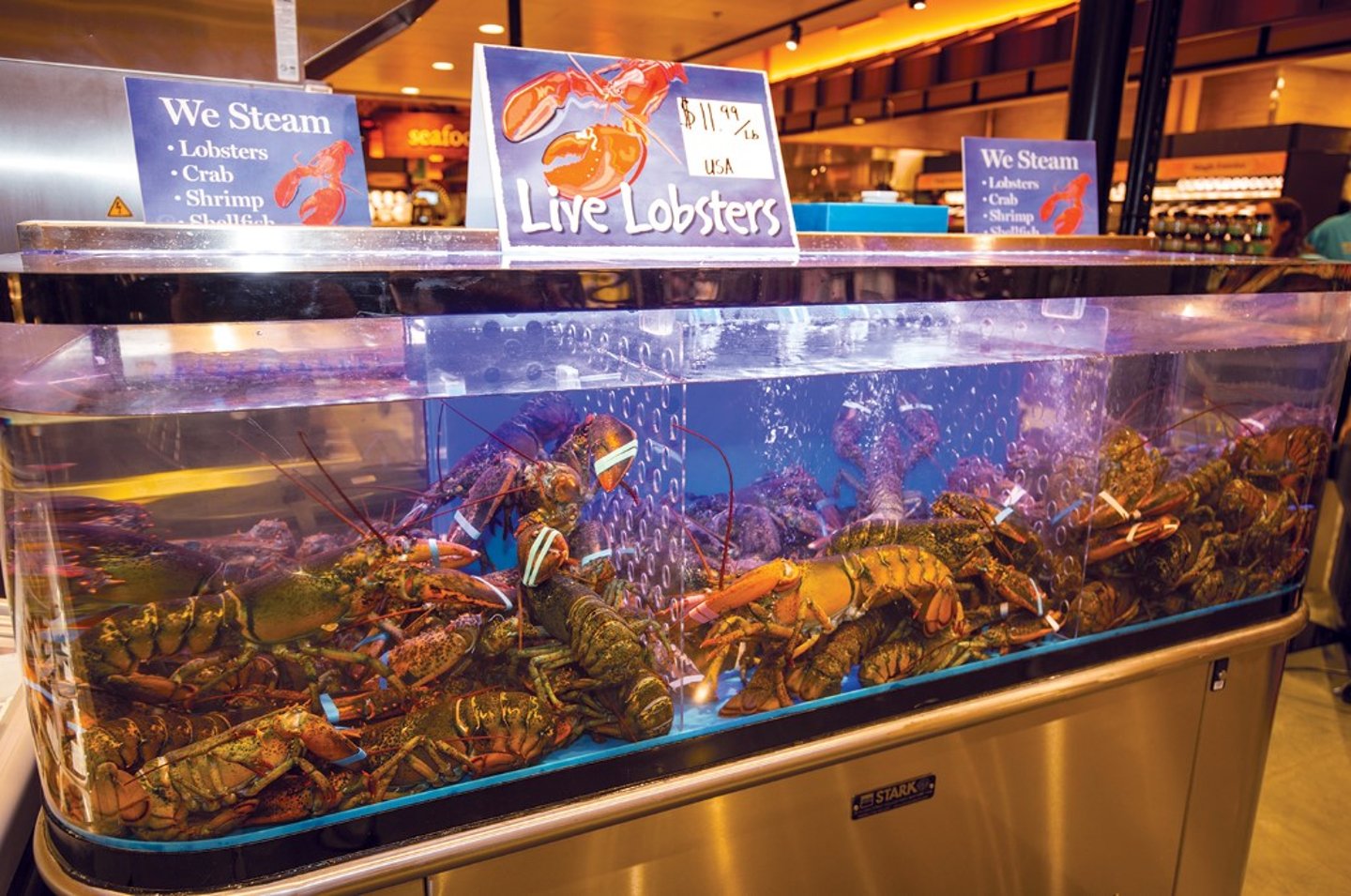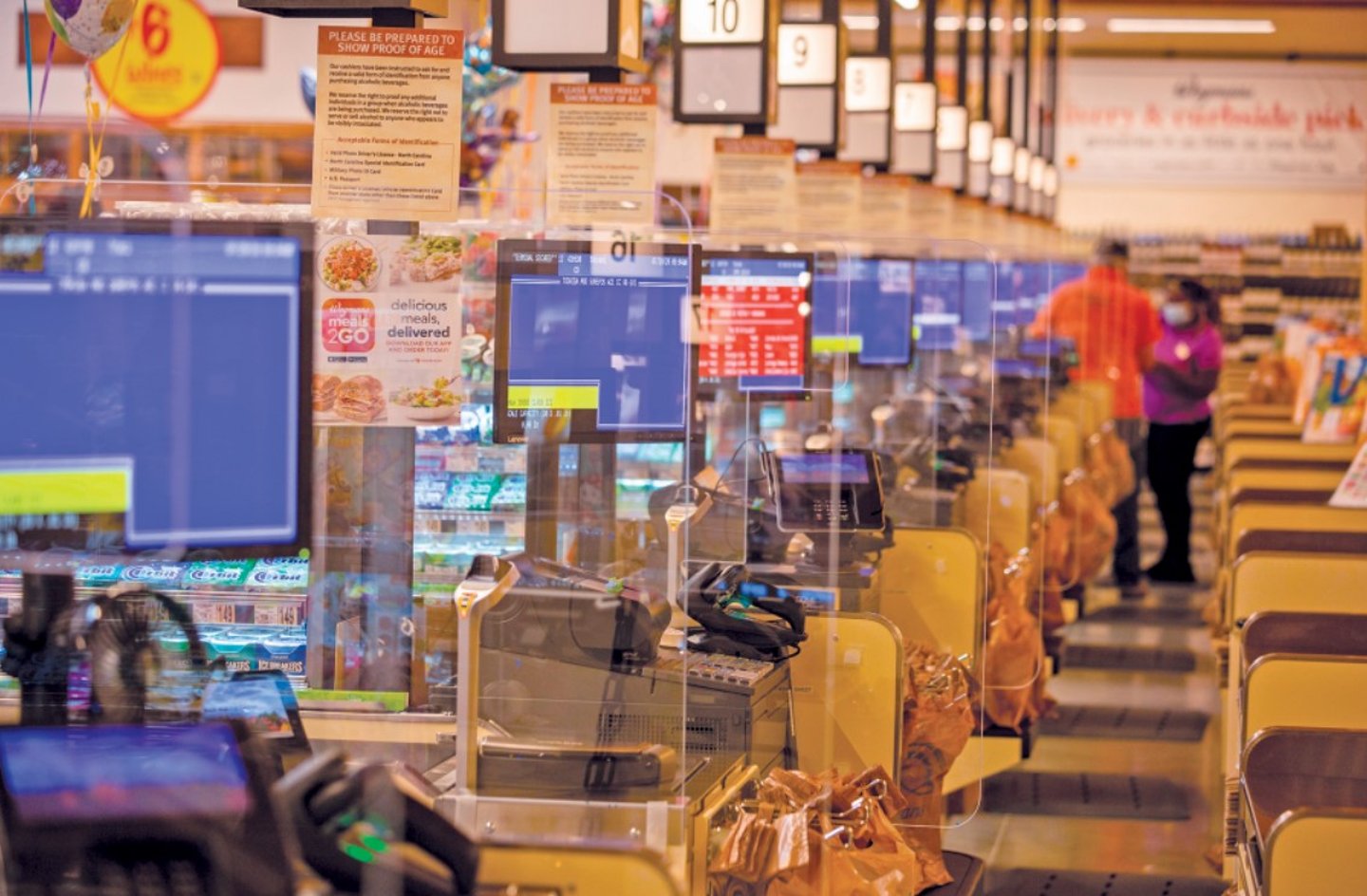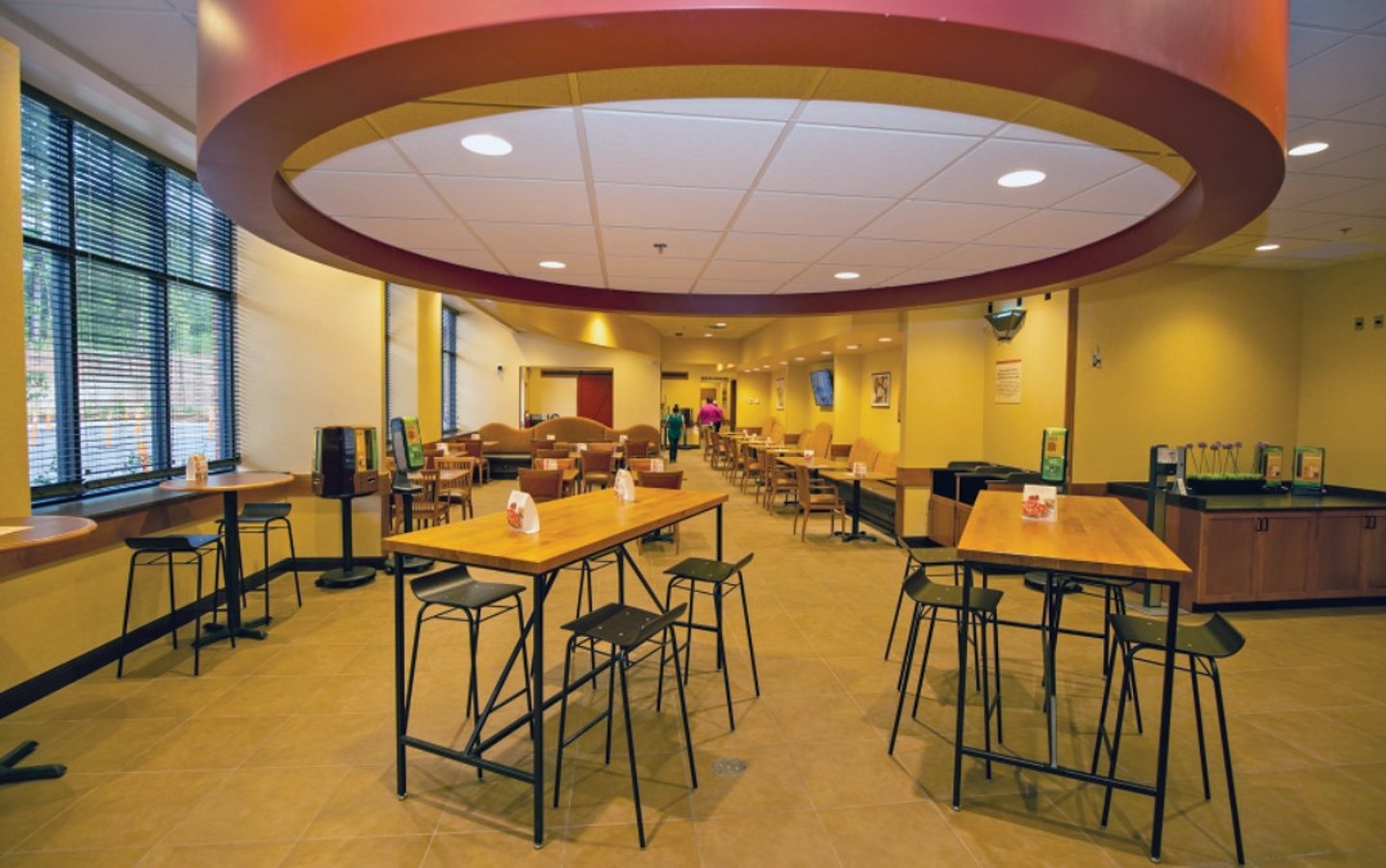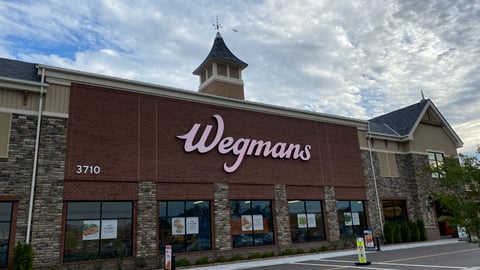How Wegmans Keeps Winning
Since the beginning of the COVID-19 crisis, dire predictions about the state of the grocery industry have been pouring in from all directions:
“It’s an extinction event for the grocery store as we know it.”
“The pandemic will change the grocery experience, and not for the better.”
Key Takeaways
- At its new West Cary, North Carolina, store, which opened in July, Wegmans has adapted its signature expansive foodservice offering to emphasize safety and sanitation during the current pandemic and beyond.
- The grocer is also attracting customers by accelerating efforts to become an online destination and focusing on sustainability.
- Wegmans’ formula for the ultimate one-stop shop might be the path forward for the grocery industry in a post-COVID world.
But the post-pandemic grocery experience is already here, and it might be even better than the pre-pandemic grocery experience.
In a sparkling new strip center in the Raleigh, North Carolina, suburb of West Cary, shoppers at the new 103,000-square-foot Wegmans Food Market there enthusiastically proved all of the doom and gloomers wrong last July 29 with a packed house on opening day — attended by customers wearing masks and socially distancing, of course.
Shoppers grabbed tongs with their bare hands and served themselves chocolate chip cookies and bagels from the self-service bakery case. A woman and her grandson headed for one of the store’s many restaurants to sample — yes, sample — Carolina pulled pork. And for digital shoppers avoiding the store, cars could pull into a lane outside and pick up groceries curbside.
Curbside grocery pickup during a pandemic is nothing new, of course. But the premise of opening an experiential grocery store in 2020 with restaurants, sampling and self-service features would seem at odds with the behaviors required to curb the COVID-19 pandemic.
Yet Wegmans, the family-owned grocer with one of the most devoted followings in retail, is betting big on this strategy as it continues its expansion southward during a historic crisis. And “The Wegmans Way” could serve as a blueprint for grocery retailers desperately trying to figure out what shoppers will want, and how they will want it, in 2021 and beyond.
“One of the wonderful things about our company is that, with a continuous improvement mindset, we always strive to achieve excellence in everything we do,” says Deanna Percassi, Wegmans’ director of public relations. “We know the only way to achieve that is by listening and responding to our customers, watching the evolving environment around us, and finding new ways to meet our customers where they are.”
Southern Comfort
Rochester, New York-based Wegmans Food Markets, which operates 104 stores and is led by the family of Colleen, Danny and Nicole Wegman, has achieved growth over its 104 years in business by opening huge stores in East Coast suburbs. Today, its locations span 80,000 to nearly 150,000 square feet and offer about 52,000 SKUs (4,000 of them organic).
Wegmans aims to operate “destination stores” designed to look and feel like a European food hall. This is accomplished through warm and cozy lighting, farmers market-style displays of organic and conventional produce, expansive in-store dining spaces, and whimsical elements (a toy train choo-chooing over the dairy case, a crowing rooster over the coffee bar) that reinforce the fresh market atmosphere. The seafood department features a massive live lobster tank. The meat department sells everything from ground chuck to ground Wagyu beef to ground wild boar. A Dessert department dips strawberries by hand. And the stores have large international food and cheese stations.
Lately, the retailer has been moving out of its Northeast and Mid-Atlantic comfort zone and expanding south, putting it in direct competition with beloved banners such as Kroger, Harris Teeter, Lowes Foods, Publix, Food Lion and many others. Wegmans’ expansion in North Carolina, where it plans to build five stores, is a big test for the company. If successful, the move will further validate Wegmans’ highly adaptive strategy and allow it to enter even more markets.
So far, Wegmans seems to be passing the test with North Carolina consumers.
Frustrated Foodies
At the new Wegmans in West Cary, thousands of pandemic-weary shoppers rushed in to buy fresh-baked peach crostatas from the bakery or made-to-order Impossible Burgers from the Wegmans Burger Bar. Foodservice, which comprises roughly 10% of Wegmans’ annual sales of nearly $10 billion, is what makes many shoppers drive past all of those competitors to a Wegmans location.
“We have expanded our traditional sushi department to offer a made-to-order poké station, as we know sushi is popular among our customers,” says Katie Duchnowski, store manager of the West Cary Wegmans. “We also expanded our Indian and Asian offerings for the same reason. In bakery, we sell our North Carolina-inspired hummingbird cake that is now sold in most of our stores as well. We also try to source locally wherever we can. We will continue listening to our customers and find ways to incorporate new products that they know and love.”
According to the company, it adjusted its West Cary foodservice offering based on different customer tastes in the area and gleanings from its first North Carolina store, in Raleigh.
“We learned a lot about our product mix and what key products our customers were looking for,” Percassi says. “Those learnings were used when selecting products for the West Cary store. For example, we added products from local bakery La Farm that we knew were important to our customers. With many upstate New York transplants in the area, we also found customers love Rochester and Buffalo staples, and made sure to offer those at West Cary, as well as [at] Raleigh.”
Early on in the pandemic, Wegmans shut down its famous hot and cold bars, which feature barbecue meats, Asian cuisine and salads. Today, they are back, but have been moved to the perimeter, encased in plexiglass and made full-service as a COVID-related precaution.
“Some of the foodservice areas look a little different now,” Duchnowski admits. “It’s what we felt most comfortable with. But our innovation team, behind the scenes, is trying to figure out what’s next in those areas.”
During the early days of the COVID crisis, most shoppers became less concerned with choice and more concerned with simply being able to get the products they needed as safely as possible. That trend is ebbing, however, as COVID fatigue sets in.
Shoppers at the West Cary Wegmans seemed relieved, after months of socially distant and rushed shopping, to return to indulging in pre-pandemic-style immersive food experiences in a grocery store. Hundreds of shoppers grabbed hot food and seemed perfectly comfortable eating in Wegmans’ large seating area with tables, comfy booths and kid-friendly spaces.
Major Supply-Chain Move Aids Southern Expansion
By Mike Troy
One of the ways that Wegmans Food Markets plans to keep winning is with much-needed supply-chain investments to serve the expanding base of stores that it operates in a wide range of sizes and sometimes unique locations.
A good example of the latter is a store scheduled to open later this fall in Tysons Corner, Va. The urban location is part of the Capital One Center mixed-use development, a complex of buildings that includes the headquarters of financial services firm Capital One, a hotel, residences and an 80,000-square-foot Wegmans on the ground floor of a 10-story building with a 1.2-acre rooftop park dubbed The Perch.
The Tysons Corner store is a little on the small side for a Wegmans, although it’s larger than a 74,000-square-foot store that opened in Brooklyn, N.Y., in October 2019. The company has also been known to think much bigger when the right opportunity arises. That was the case in April 2018, when the retailer took advantage of a two-level space vacated by J.C. Penney at the Natick Mall, in Massachusetts, to open a 146,500-square-foot store.
These locations tend to be anomalies, though, as Wegmans’ sweet spot, based on the majority of recent openings, is in the 100,000- to 120,000-square-foot range. This was evident with the company’s first North Carolina store, a 104,000-square-foot location in Raleigh that opened last September, followed by a 103,000-square-foot location that opened in West Cary in July. Rochester, New York-based Wegmans has big plans for North Carolina, with two more locations confirmed to open next year in Chapel Hill (spring) and Wake Forest (summer), followed by other locations in Holly Springs and Cary.
To support those locations, Wegmans plans to open what it calls a “retail service center,” or what others refer to as a distribution or fulfillment center, near Ashland, Virginia. The $175 million facility won’t become operational until 2022, but when it does, the roughly 1.3 million square feet of office and warehouse space will accommodate further growth in North Carolina while improving support for stores in Virginia and Maryland.
The facility is much needed, since Wegmans’ current retail service center in the central Pennsylvania community of Pottsville requires trucks to travel great distances to service stores. For example, the new stores in North Carolina are nearly a seven-hour drive from the Pottsville facility, which also services stores in eastern Massachusetts that are roughly five hours away.
Retailers typically prefer supply-chain facilities to be in closer proximity to stores for more efficient and timely replenishment, and reduced transportation costs. Wegmans’ Ashland facility addresses the proximity issue and sets the company up for growth in southern markets with growing populations to offset challenges in some northeastern areas with flat to declining populations.
“Once it’s up and running, this facility will allow us to deliver products to our southernmost stores with increased speed and freshness, and will help support our growth well into the future,” Wegmans President and CEO Colleen Wegman said when the Ashland facility was revealed.
By the time the facility opens, in two years’ time, Wegmans expects to have 25 stores operating in Virginia and North Carolina, and to be expanding at a rate of two to three locations annually, according to planning documents submitted to Virginia’s Hanover County.
The seismic shift in shopping habits this year means that many consumers are making larger-basket, less frequent trips to the store (Wegmans reports that its basket size is up as much as 40% this year). At the same time, many shoppers have grown tired of cooking at home during months of quarantine, and they want convenient ready-to-eat meals at a value in a safe social setting as they continue to avoid traditional restaurants.
This means that operators such as Wegmans that have expansive foodservice offerings — with recession-friendly prices and pandemic-friendly larger spaces — seem poised to hold a significant advantage over competitors. The large common dining areas that are the hallmark of Wegmans stores can give shoppers a sense of dining in a safe yet social setting, with less risk of contracting the coronavirus.
“We opened West Cary with a team in place to focus solely on the sanitation of high-contact touchpoints and ensuring routine preventative measures throughout the store,” Duchnowski notes. “Plexiglass shields were installed at all our registers. We placed visual indicators throughout the store to encourage all customers and employees to be respectful of social-distancing guidelines. In addition, we installed a camera outside the store to allow customers to see if there is a line to enter the store.”
Ominchannel Omnivores
Another way that Wegmans is winning over customers is by accelerating efforts to become a destination online. Among its key competitors along the East Coast, Wegmans is blazing a new trail by putting everything — and I mean everything — online, from paper towels to hard seltzer to hot egg rolls.
Earlier this year, the grocer redesigned wegmans.com and the Wegmans app to allow shoppers to see digital coupons as they build a personalized shopping list. Shoppers also now get more personalized search results on both platforms. Additionally, both the website and app were updated to offer more options for curbside pickup or delivery.
At the West Cary store, Wegmans didn’t just add just one curbside pickup lane, it offered two: one for groceries and one for foodservice. Today, shoppers can order a hot dinner of chicken tikka masala for four — or 24 — and pick it up curbside while never having to get out of the car.
“Our catering is available on Meals 2 Go,” Duchnowski says, “so if a customer is hosting an event, having a party, or even just having a nice dinner with family, all of that can be ordered from our catering department, and all of it is something that we can deliver as well.”
In addition to partnerships with food delivery app DoorDash, Wegmans is also pioneering a new arrangement with Instacart.
“Instacart does our grocery delivery, but some of the shoppers in-store are Wegmans team members, and some are Instacart,” Duchnowski explains. “We team up with the Instacart shoppers. We learn from each other, grow efficiencies together. They teach us how to shop a little quicker, and we know the store better, and so we’re able to help them. So it’s kind of like a nice, you know, collaborative thing that we do that we started because of the demand we really had.”
Last year, Wegmans launched Wegmans SCAN, a free mobile app that customers can use to scan and bag their groceries while they shop. The app tracks a running total for the order, so consumers know how much they’re spending, and it automatically applies any available coupons or discounts. When customers finish their shopping, they simply walk up to a kiosk or register to pay.
“After a customer downloads our app, they can bring their bags and start filling them up as they go, and then they can take their phone to the self-checkout register and scan a bar code and they’re done,” Duchnowski says. The company is also working on checkoutless technology to make shopping even more convenient.
“In the near future, the customer won’t even have to go to the register,” Duchnowski observes. “We’re actually working with Toshiba on that project right now.”
Another way that Wegmans is winning is with its sustainability efforts. The grocer routinely tops various lists of best workplaces and grocery stores in the United States. It has been named one of the 100 best companies to work for by Fortune magazine for 22 consecutive years, and this year, it tied for first place as the top-rated grocery store chain on the American Customer Satisfaction Index.
Wegmans is also known for its history of charitable donations and community outreach programs, as well as for its environmental initiatives.
“We focus our sustainability efforts on three priority areas: reducing waste in landfills, offering sustainable packaging and reducing emissions,” Percassi says. “Throughout the pandemic, we’ve been able to maintain the sustainability programs already in place. We have long focused on reducing food waste in our stores, and that hasn’t changed. A key part of those efforts is our Perishable Pick-up Program, where unsaleable perishable food items are picked up at our stores by local food pantries and food banks throughout the week. All year long, and particularly during this time of increased need, not only does this program play a vital role in reducing food waste, but also [in] getting wholesome food to those who need it most.”
When the dust settles from the pandemic and Americans return to dining out and shopping their grocery stores with ease, Wegmans’ formula for the ultimate one-stop shop might be the path forward. The company has survived a range of disasters over the past 104 years and knows how to quickly pivot to satisfy a broad range of shoppers’ needs and wants.




